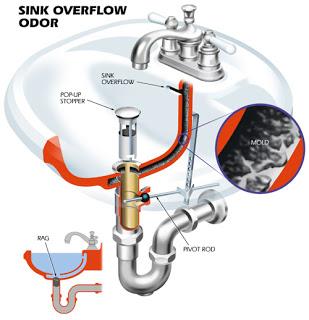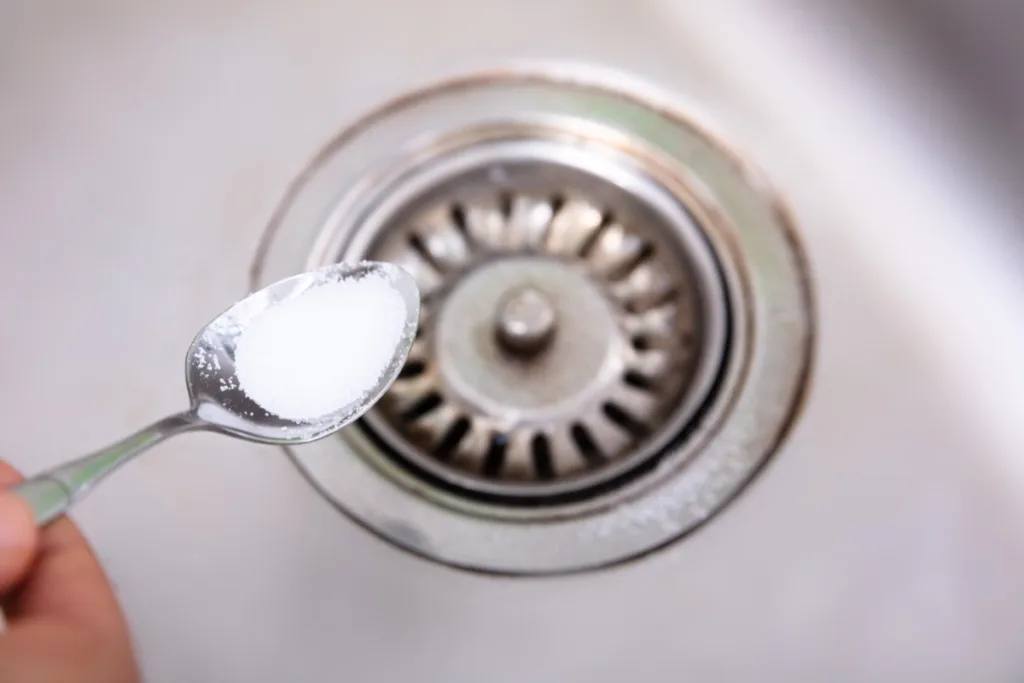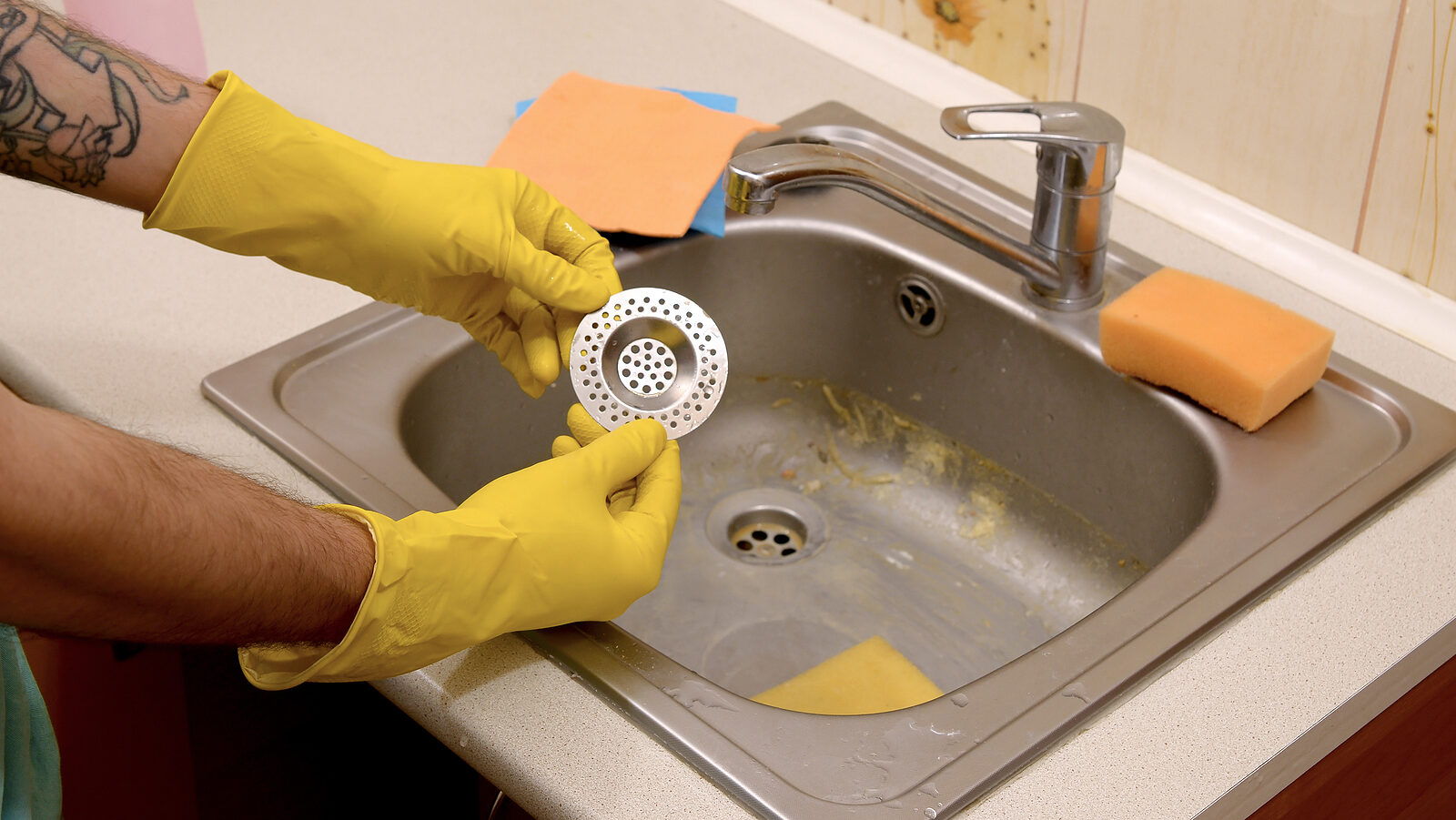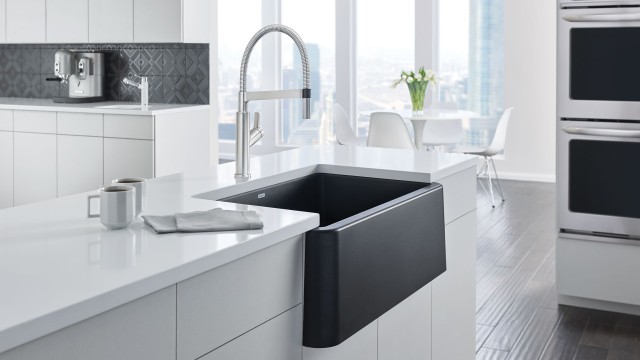Bathroom Sink Drain Smells
One of the most common and unpleasant smells coming from a bathroom is a sink drain smell. This can be caused by a buildup of bacteria, soap scum, and other organic material in the drain. It can also be caused by a clog or blockage in the drain, which could be caused by excess hair, food, or other debris. To get rid of the smell, it is important to identify the source of the odor and take the necessary steps to clean and unclog the drain. This will help to ensure that the bathroom sink smell is no longer a problem.

Causes of Smelly Drains
The bathroom sink drain can be a source of unpleasant odors. There are many possible causes of a smelly sink drain, including poor ventilation, food residue, mold and mildew, and grease build-up. Understanding the causes of a smelly sink drain can help you take the steps needed to eliminate the bad smell.
Poor ventilation is one of the most common causes of smelly sink drains. When air is unable to move freely through the drain, bacteria, and other organic matter can build up and create an unpleasant odor. To improve ventilation, make sure the vent pipe is not blocked or obstructed.
Food residue can also cause a smelly sink drain. When food scraps and oils accumulate in the drain, they can rot and create a bad smell. To prevent this from happening, be sure to dispose of food scraps in a bin or garbage can rather than the sink. Additionally, running hot water down the drain each time you use it will help to rinse away leftover food particles.
Mold and mildew can also lead to a smelly sink drain. This is especially common in damp, humid environments. To remove the smell, use a combination of bleach and hot water to scrub away any mold and mildew that may have built up in the drain.
Finally, grease build-up can also cause a smelly sink drain. Grease and other oily substances can accumulate in the pipes over time, leading to an unpleasant smell. To prevent grease build-up, avoid pouring grease, oil, or fats down the drain. Additionally, install a grease trap under the sink to capture any grease or oil that may escape.
By understanding the causes of a smelly sink drain, you can take the necessary steps to eliminate the bad odor. Through proper ventilation, disposal of food scraps, removal of mold and mildew, and prevention of grease build-up, you can prevent a smelly sink drain in your home.
How to Identify a Smelly Drain
Nobody likes dealing with a smelly bathroom sink drain, but often, these odors are relatively easy to identify and address. If you’ve noticed an unpleasant smell coming from your bathroom sink drain, there are a few steps you can take to get to the bottom of the issue and find a resolution.
First, you should determine the source of the smell. It could be coming from a buildup of debris and waste that has accumulated in the drain, creating an environment for bacteria to grow. Alternatively, the smell may be coming from a clogged P-trap. This is a curved section of pipe that is designed to keep sewer gas from entering the home. If this pipe is clogged, it could be allowing the gas to escape and cause an unpleasant smell.
Next, you should take steps to address the issue. If you suspect that the smell is coming from a buildup of waste, it is best to remove the drain cover and use a plumbing snake or an auger to break up any blockages. If the smell is coming from the P-trap, you may need to disassemble the system and clear the clog. If you’re not comfortable doing this yourself, it’s best to call a professional plumber for assistance.
Finally, if the smell persists after you’ve taken the above steps, it may be caused by a more serious issue, such as a broken sewer line. In this case, it is best to contact a professional immediately. They will be able to diagnose the issue and offer the best solution.
By understanding the source of a smelly bathroom sink drain and taking the necessary steps to address the issue, you can ensure that your bathroom remains free of unpleasant odors.
Symptoms of a Clogged Drain
It’s easy to tell when your bathroom sink drain smells, but what are the symptoms of a clogged drain? A clogged drain can cause a variety of issues including slow draining water, gurgling noises, and a foul smell. Identifying the symptoms of a clogged drain can help you take preventive measures to avoid further damage and costly repairs.
The most common symptom of a clogged drain is slow-draining water. When water doesn’t go down the drain as quickly as it should, it’s likely the result of a clog. Other signs of a clogged drain include gurgling noises from the plumbing, water backing up in the sink, and a foul smell. If you notice any of these symptoms, it’s important to act quickly to avoid further damage.
If left unchecked, a clogged drain can cause major problems. It can cause water to back up into the sink, resulting in a messy overflow. A more serious issue is the potential for the drain to become completely blocked, meaning no water can pass through. This can cause serious plumbing damage and expensive repairs.
Luckily, there are several measures you can take to prevent a clogged drain. Regularly cleaning your sink and drain with a mild cleaner can help keep the pipes clear and odor-free. You can also use a drain snake or plunger to clear any buildup. If your drain still smells after taking these steps, you may need to call a professional plumber to identify the source of the clog and provide a solution.
Prevention Strategies for Avoiding Smelly Drains
Nobody likes a smelly bathroom sink drain. Unfortunately, this is a common problem that many homeowners face. It’s important to understand the underlying causes of a smelly drain and take steps to prevent it from happening. The most common cause of a smelly drain is a build-up of bacteria and organic matter in the pipes. This can be caused by food, hair, and other debris that gets stuck in the pipes. Other potential causes of smelly drains include a lack of ventilation in the pipes and an accumulation of soap scum or mildew.
Fortunately, there are several strategies for avoiding smelly bathroom sink drains. The first is to regularly clean the pipes. If possible, use a plumbing snake to remove any debris that has built up in the pipes. You can also use a bleach solution to clean the pipes and kill bacteria that could be causing the odor. Additionally, keep the sink and drain area clean and dry. To prevent mildew, make sure to clean up any spills immediately and use a fan or open window to ensure proper ventilation. Finally, a good practice is to pour a few cups of boiling water down the drain every few weeks to help clear out any debris and keep the drain smelling fresh.
By understanding the causes of smelly drains and implementing preventive strategies, you can keep your bathroom sink drain smelling fresh and avoid any unpleasant odors.

Credit: housewifehowtos.com
DIY Solutions for Unclogging a Smelly Drain
We all know that feeling of dread when you walk into the bathroom and smell something unpleasant coming from the sink drain. It’s not only unpleasant but can be a sign of a serious plumbing issue. Fortunately, there are a few DIY solutions you can try before calling in a professional.
To get rid of a smelly bathroom sink drain, the first thing to do is to remove any debris that may be causing the smell. Be sure to check the drain stopper and the U-bend below the sink for any buildup. If the smell persists, try pouring a cup of baking soda and one cup of vinegar down the drain. Leave it to sit for about 15 minutes and then flush it with hot water.
If that doesn’t work, try using a plumber’s snake or auger. Insert it into the drain and slowly turn the crank until you feel it catch on a clog. Turn the crank counterclockwise to break up the debris. Once it’s cleared, flush with hot water.
If you still have a smelly drain, you may have a bigger clog further down the drainpipe. In this case, it’s best to call in a professional plumber. They can use specialized tools to clear the clog and inspect the entire drain system to see if there are any underlying issues.
By regularly cleaning your bathroom sink drain and paying attention to any strange smells, you can help prevent a clog from forming. Following these simple DIY solutions should help get rid of a smelly bathroom sink drain and help you breathe easy.
Professional Solutions for Unclogging a Smelly Drain
No one wants to have a smelly drain in their bathroom sink, but unfortunately, it happens to all of us at some point. It’s an unpleasant experience, but fortunately, there are professional solutions to help unclog your drain and make it smell better. With the right tools and techniques, you can quickly and easily get rid of that smelly sink drain.
The first step in dealing with a smelly sink drain is to identify the source of the smell. Common causes include bacteria buildup, food debris, and soap scum. Once you’ve identified the source, you can use specialized products designed to target these causes. These products may include enzymatic cleaners, bacteria-eating products, and powerful drain cleaners.
In addition to using products to unclog a smelly drain, it’s also important to take preventative measures. Regularly cleaning the sink and drain with a mild detergent or baking soda can help keep the drain clear and odor-free. You should also be sure to run hot water through the drain after each use, as this will help to prevent the buildup of bacteria and other debris.
Finally, if all else fails, you may need to call a professional plumber to unclog the drain. Plumbers are equipped with specialized tools and techniques that can quickly and effectively remove the clog and get rid of the smell. With the right tools and techniques, a plumber can help you quickly and easily get rid of that smelly sink drain.
By taking the right steps, you can get rid of that smelly sink drain quickly and easily. From identifying the source of the smell to using specialized products and preventative measures, there are many professional solutions available to help unclog a smelly drain. With the right approach, you can restore your bathroom sink to its original, pleasant-smelling condition.
Common Cleaning Products For Cleaning a Smelly Drain
A smelly drain in your bathroom sink is a common problem, but luckily some common cleaning products can help you remove the unpleasant odors. From vinegar to baking soda, we’ll discuss some of the most effective cleaning products that can help you clean and freshen your bathroom sink drain.
Vinegar is a great all-purpose cleaner that can effectively remove odor-causing bacteria and also dissolve tough clogs. To use vinegar, mix equal parts vinegar and water and pour it down the drain. You can also use lemon juice instead of vinegar, as it also has acidic properties that can help break down clogs and eliminate odors.
Baking soda is another effective cleaner for combating smelly drains. It’s great for breaking down tough clogs and eliminating odors. To use baking soda, mix one-half cup of baking soda with one-half cup of water and pour the mixture down the drain. Then, follow it up with one cup of vinegar. The combination of baking soda and vinegar will create a foaming reaction that can help break down clogs and eliminate odors.
Bleach is a powerful cleaner that can also be used to clean smelly drains. To use it, mix one-quarter cup of bleach with one-half cup of water and pour it down the drain. Allow the mixture to sit in the drain for 15 minutes before flushing with hot water. This will help disinfect the drain and get rid of any lingering odors.
Finally, you can use a commercial drain cleaner to clean out your smelly drain. Commercial drain cleaners contain strong chemicals that can help break down tough clogs and eliminate odors. Be sure to follow the instructions on the package and use caution when using these products.
Cleaning a smelly bathroom sink drain doesn’t have to be a difficult task. With the right cleaning products, you can easily get rid of bad odors and keep your sink drain clean and fresh.
Benefits of Maintaining a Clean and Odor-Free Drain
A clogged or dirty bathroom sink drain can cause an unpleasant odor and can be a nuisance to deal with. Keeping your bathroom sink drain clean and well-maintained is essential to ensuring a pleasant-smelling bathroom. Not only can a clean sink drain help prevent odors, but it can also help reduce the risk of plumbing issues associated with a clogged sink drain. There are several benefits to regularly cleaning and maintaining a clean and odor-free drain that we will explore in this blog.
Regular cleaning of your bathroom sink drain can help prevent the growth of bacteria, mold, and mildew that can cause a foul smell and are potentially hazardous to your health. A drain cleaner or deodorizer can help eliminate odors and reduce the risk of bacteria growth. Additionally, regular maintenance of your sink drain can help prevent clogs that can become a major plumbing issue. Unclogging a sink can be a time-consuming and expensive process, so it’s best to try and keep your sink drain and trap clean and free of debris.
In summary, there are many advantages to regularly cleaning and maintaining a clean and odor-free bathroom sink drain. Regular cleaning reduces the risk of bacteria growth and can help prevent clogs that can become a major plumbing issue. Deodorizers and drain cleaners can also be used to keep your sink smelling fresh and clean. By following these simple tips, you can help ensure your bathroom sink drain stays clean and odor-free.
FAQs About the Bathroom Sink Drain Smells
Q1: What causes a bathroom sink drain to smell?
A1: A variety of factors can cause a bathroom sink drain to smell, including the accumulation of bacteria, mold, mildew, or soap scum in the pipes, a blocked vent pipe, or old, worn-out pipes.
Q2: How do I get rid of a smelly bathroom sink drain?
A2: To get rid of a smelly bathroom sink drain, you can use a combination of natural ingredients like baking soda and vinegar or a commercial drain cleaner. You can also try using a plunger or auger to clear any clogs that may be causing the smell.
Q3: How can I prevent my bathroom sink drain from smelling?
A3: To prevent your bathroom sink drain from smelling, regularly clean it with a mixture of baking soda and vinegar, and use a plunger or auger to clear any clogs. Additionally, avoid pouring grease, oil, and other fatty substances down the drain, as these can accumulate and cause bad odors.
Conclusion
Overall, a smelly bathroom sink drain can be caused by a variety of issues, including a build-up of debris or bacteria in the pipes, a dry P-trap, or a venting issue. It is important to investigate the source of the smell and address the issue promptly to prevent further damage to your plumbing. Cleaning the sink, using a chemical cleaner, or hiring a plumber are all potential solutions. With the right approach, you can get rid of the smell and keep your bathroom sink drain smelling fresh and clean.







